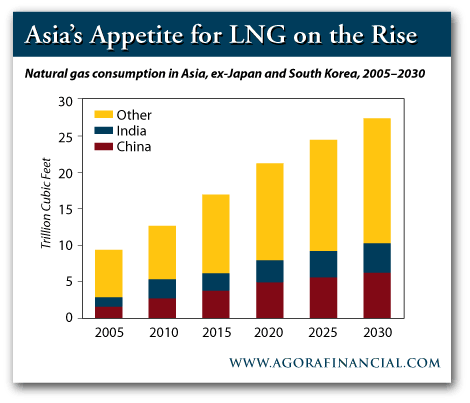First off, the nation's largest company, Toyota, was forced to issue a recall for automobiles on three continents after it was revealed that the brake pedal on certain models had a tendency to "get stuck." Consumers have become rather attached to the brake accessory on modern automobiles and didn't take kindly to Toyota's technical oversight. The company was forced to issue a worldwide public apology...then added that it will shut down five assembly plants in the US.
Then there was the somewhat embarrassing news - in the same industry, no less - that China has overtaken Japan as the world's largest car manufacturer.
And, of course, there was that other stroke of bad fortune when ratings agency Standard & Poor's threatened to downgrade the Japanese government's credit rating, noting that Prime Minister Yukio Hatoyama is moving too slowly to reduce the nation's soaring debt levels.
Bad luck in threes, you say? Hmm...
Your editor is gallivanting around Tokyo at present, enjoying the spoils of the deflationary spiral but ruing the stubbornly strong local currency. Prices continue falling...but the yen refuses to give an inch, even under threat of credit downgrades. Even so, a room that once went for ¥30,000 can now be had for a fraction of that amount. Restaurants and retailers engage in ruthless price wars in an attempt to stimulate demand from persistently frugal Japanese consumers. And, while Tokyo is by no means a "cheap" city to visit, it's decidedly more affordable than it would have been back in the bubble years, before The Land of the Rising Sun underwent one of the most dramatic deflationary periods in modern economic history. Last year, while consumer prices among industrialized economies recovered about 1.3%, they fell almost 2% here in Japan.
But as Japan's appetite slows, the rest of Asia grows ever hungrier. Along with South Korea, this tiny stretch of islands currently commands an inordinately large share of the world's natural gas supply. Now, that trend is changing. As Chris Mayer observed in last Friday's edition of The 5-Minute Forecast, there are new players in the demand for this clean-burning fuel...and new ways to profit by investing in it...
"Australia is on its way to becoming to natural gas what the Middle East is to oil," observes Chris, fresh back from leading a tour of investors around your editor's country of birth. "This could become Australia's biggest resource boom yet," he assures us.
"Asia is the fastest growing stocks market for liquid natural gas (LNG). Currently, Japan is the largest buyer. Japan and South Korea together make up 53% of current global regasification capacity. (That is, the ability to import LNG and turn it back into a gas for consumer and industrial use.) But demand elsewhere in Asia is catching up:
 |
"So how will the stock market meet this surge in Asian demand? That's where LNG from nearby Australia comes in. The amount of money going here is just staggering. The Gorgon project alone - a joint venture between Exxon Mobil, Chevron and Shell in Australia - will cost some $50 billion. It already has supply contracts from India and China worth $60 billion and will surely get more before it opens in 2014.
"There are other firms pushing ahead with aggressive LNG ambitions. Woodside Petroleum, an Aussie oil and gas company, wants to be the leader in LNG by 2020.
"As a result of all this activity, Australia will challenge Qatar as the world's largest LNG exporter. One analyst quoted here said: 'The numbers are phenomenal. When you look at them, it's mind-boggling. It's going to be LNG boom times.'
"It's quite possible that in the next decade, LNG will surpass coal as Australia's most valuable export. The government is certainly supporting LNG projects - it will add a gush of tax revenues to its coffers. Look at what oil did for the Middle East; the same kind of thing could well happen for Australia."
No comments:
Post a Comment